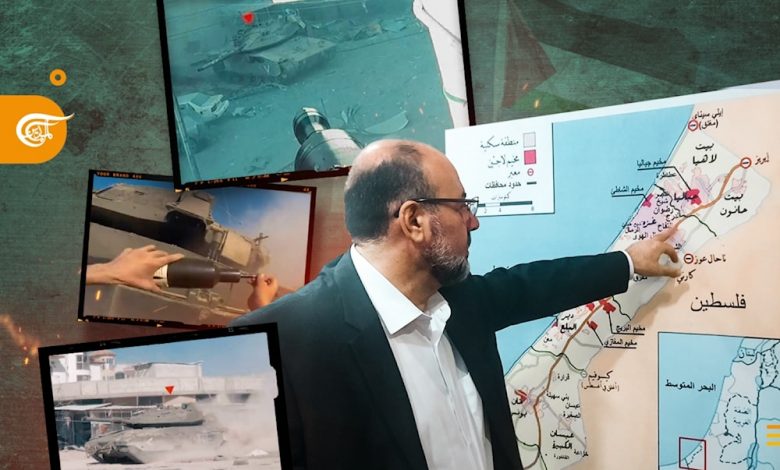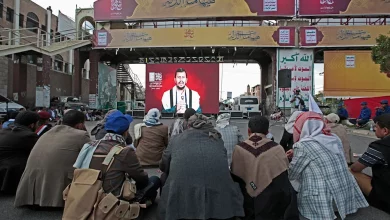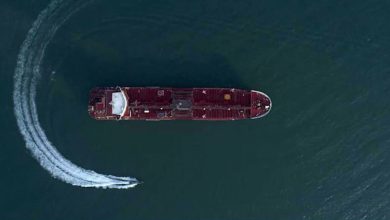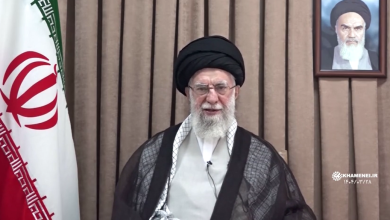Exclusive: Hamas says Rafah brigades have a surprise in store

Ali Baraka, the head of Hamas’ Foreign Relations Department, underscores that while the Rafah Brigades have refrained from direct involvement, they have diligently upheld their equipment and capabilities.
The Rafah brigades have not yet been involved in the ongoing war, however, they are prepared for a potential confrontation, Ali Baraka, the head of Hamas’ Foreign Relations Department, told Al Mayadeen Net on Wednesday.
Baraka emphasized that despite them still not having participated, the Rafah Brigades have maintained their equipment and capabilities, leveraging experience gained from previous battles.
He cautioned that any Israeli invasion of Rafah should expect significant losses in terms of personnel and military assets.
Commenting on tunnel warfare, Baraka affirmed that the IOF were unable to enter and act offensively inside the Hamas tunnel network.
He further detailed that Palestinian fighters used the tunnels to carry out operations, with the network spread underground from North to South, assuring that the enemy had been taken aback by Palestinian weaponry.
Currently, the IOF are engaged in a war of attrition and find themselves trapped in Gaza.
The top Hamas official said that the enemy experienced two surprises in this ongoing battle: the first occurred on October 7, and yesterday saw the resignation of Aharon Haliva, the head of the Israeli Military Intelligence Directorate Aman, acknowledging his failure to anticipate such a significant attack. The second surprise was the unexpected strength displayed by Resistance forces in ground combat.
Is the US helpless against ‘Israel’?
On Hamas’ military capabilities, Baraka affirmed that the Palestinian Resistance has shifted towards local manufacturing and has utilized time effectively.
“Over the past 10 years, preparations have been made for this battle, with the Resistance benefiting from the experiences of allies in Syria and Iran, who assisted in transferring military technology,” he stressed.
Regarding the airdrop of aid, he commented, “Firstly, we do not prohibit aid from anyone, as the hungry seek to secure food and medicine for their families. But why drop aid from the air? Are America, along with Egypt, Jordan, and the UAE, so helpless against Israel that they are unable to deliver aid through the Rafah or Kerem Shalom crossings? It’s part of Israel’s policy of starvation and humiliation.”
Elsewhere in his remarks, he emphasized the urgent need for Arab nations to provide aid, stressing the requirement for 500 trucks daily. He further urged for immediate action, calling for an Arab delegation to cross the Rafah crossing, reminiscent of the 2012 event that broke the siege on the Palestinian people.
Baraka’s plea extended to the populace, urging thousands to mobilize and facilitate the delivery of essential medicine and food.
Supporting fronts paralyzed and disrupted IOF
After the 1,998 operations conducted by all supporting fronts in Lebanon, Yemen, and Iraq during the 200 days of aggression, Baraka affirmed that these were “real fronts” in the war, disrupting and paralyzing the enemy.
He also stressed that the enemy is constrained in the Lebanese front, realizing that after its failure in Gaza, it could not open a new front.
The Lebanese front has presented more than 300 martyrs, immobilizing the movement of the occupying army, which was forced to transfer four brigades from the South to the North, relieving pressure on the Gaza front, he further contended.
“This also led to the displacement of more than 100,000 settlers from al-Jalil [Galilee], with material losses exceeding a billion dollars, in addition to the paralysis of economic activity in the North. If you monitor the past week’s development, starting with the Arab al-Aramshe Operation, you will notice that the Resistance is conducting important operations, and the Zionist enemy is considering the Resistance’s moves a thousand times,” Baraka told.







